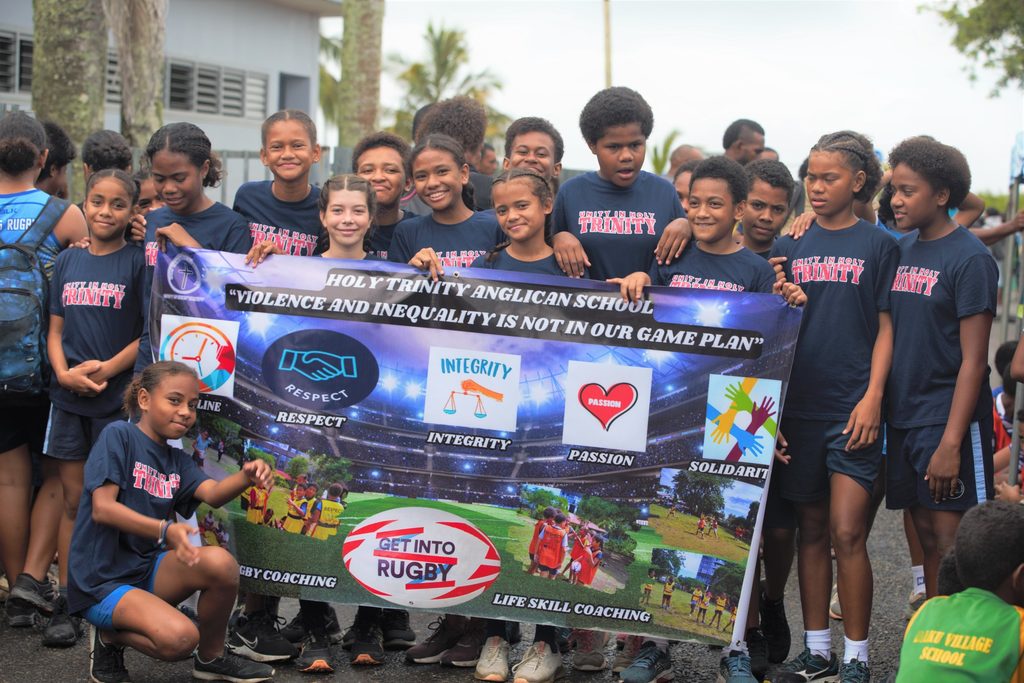As we mark the 16 Days of Activism Against Gender-Based Violence this year, primary school students converged at Suva’s Bidesi Park last week for the first-ever Get Into Rugby (GIR) Plus Festival.
The one-day event saw boys’ and girls’ teams from schools in Suva, Naitasiri, Nasinu, Rewa, and Nausori face each other in friendly tag rugby matches.
So how exactly does this tie in to the 16 Days of Activism? GIR Plus co-ordinator Oripa Lee explained that the aim of the tournament was to foster a culture of respect and trust between the two genders through the values of rugby.
“The five values of rugby go by the acronym DRIPS which is D for discipline, R for respect, I for integrity, P for passion, and S for solidarity,” Ms Lee said.
“In their respective schools, under this program, the children have been coached on how to live by these values. Both in terms of rugby and as part of their life skills.”
According to Ms Lee, children must be driven and motivated by good moral values and not just an attitude ‘to win at all costs.’
“If there are no values, then there is emptiness. There will always be cheating. There will always be vulgar languages and fighting and all those different types of violence, which is what we are trying to eliminate.”
Ms Lee highlighted that as an executive member of the Lautoka Primary Schools Association, they have replaced the word competition with festival when it comes to rugby meets.
“So, we put it as a festival, but a festival where they come and showcase their talents but with good sportsmanship and the five core values (DRIP) at heart.”
Ms Lee shared that the change in mindset and attitude was not just visible in the students, but has also trickled down to the parents and spectators.
“It is a much different atmosphere compared to the past when fights would break out between the players, sometimes between the referees and parents, and also teachers would also become victims of verbal abuse.”
Holistic development through the values of rugby is the goal for GIR Plus.
“We want our children to get out on the field and give it their all, but at the same time have respect for those around them and abide by the laws of the game. Clean rugby is what we want.
“The same respect and dignity they display on the field are what we want them to continue within their everyday life, especially with the opposite sex.”
The director for the Department of Women, Selai Korovusere, agreed that sports, and in this case rugby, was a critical tool that the government was utilising to drive forward the National Action Plan to Prevent Violence Against Women and Girls (NAP).
“In terms of legislation to protect women and girls, in the region, Fiji has some of the strongest laws in place and the biggest progress we have made is the implementation of the NAP which is really focused on preventing violence before it starts.”
Ms Korovusere highlighted that of the 13 settings they have identified for the NAP, sports was a key area.
“In line with the proposed review in the education curriculum where we are working with the Ministry of Education to promote healthy and more respectful relationships in schools, we are also bringing a similar concept onto the sports field.
“Given that rugby is our national sport, GIR Plus is one such program where we see that it’s important to nurture young girls and boys in terms of developing respectful, safe, and inclusive spaces,” she said.
Maca Kaloundonu is the coach of Lomaivuna’s GIR Plus team that was part of the event, and she agrees about promoting a violence-free atmosphere in the sports field.
“In teaching our children about the five values of rugby (DRIP) as they get older, they will be able to respect each other and the opposite gender. Violence is not in our game plan,” she said.
Ms Kaloudonu expressed her joy as an educator to witness how a more positive mindset and attitude are visible in her students.
“I notice how they are able to interact with each other openly and if they face an issue, they do not hide it, they are bold enough to speak up if they have been bullied or unfairly treated.”
Dominika Marama, a Year 6 teacher from Bau District School which was also part of the festival, highlighted that the only significant challenge her under-12 GIR girls team faced was their attire during training.
“When we train on Bau the girls will have to wear their skirts and dresses which can be very uncomfortable for them.
“So sometimes we have to travel out of the island and train at Nadave and then the girls can be in their normal sports attire, so that for us is the most challenging part,” she said.
Neli Nabogi, a teacher at Namata District School and GIR coach highlighted that starting off in a male-dominated sport was always a challenge, but her love for teaching and for her children is what carried her through and remains her greatest source of strength.
“Even though there was a bit of reluctance in the beginning when we kicked off this program, we have made tremendous progress, especially in terms of driving forward the message on preventing violence against women and girls.”
“Before there was name calling and boys would look down on the girls, however, now there is a lot more respect being shown to the girls and a much greater appreciation of their responsibility in ensuring gender equality,” she said.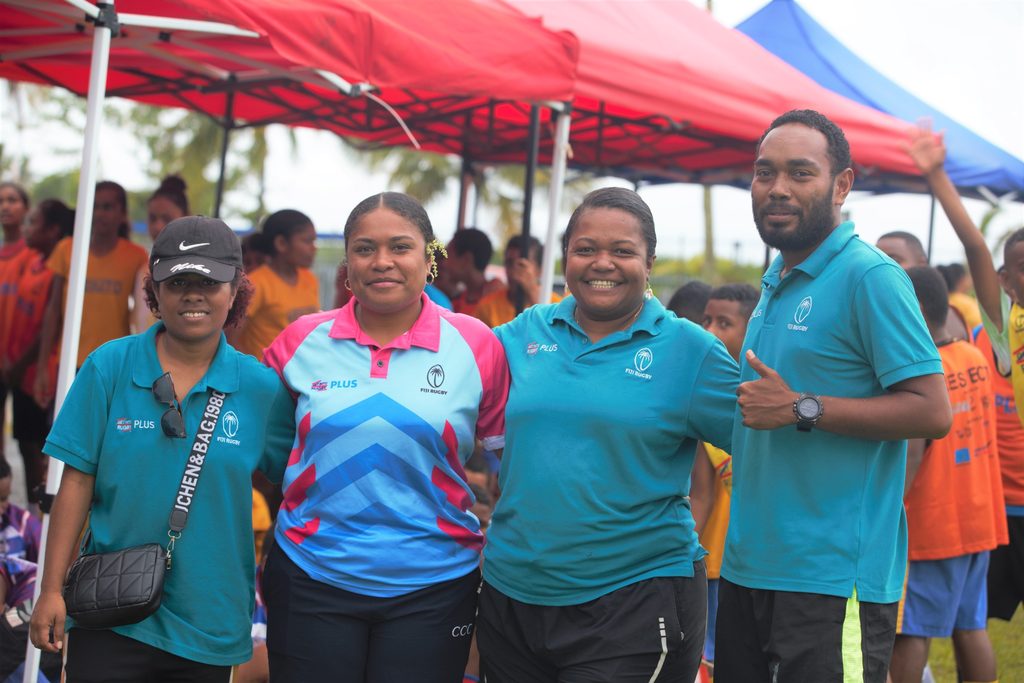
Match officials and teachers.
Picture: AUSTRALIAN HIGH COMMISSION
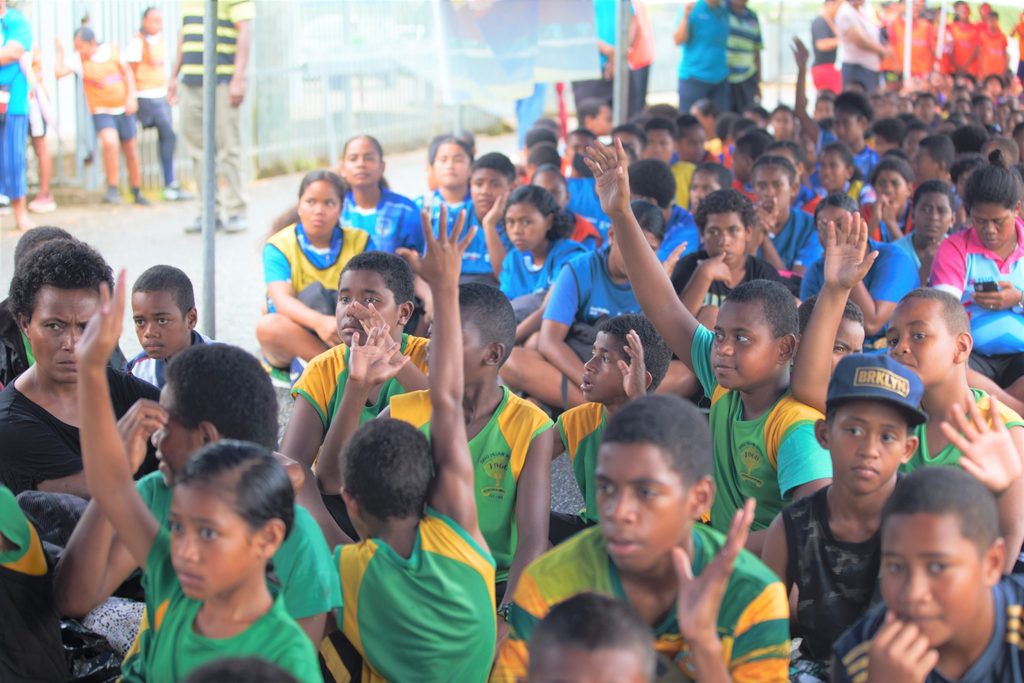
Students from Daku Primary School
interacting with fellow students.
Picture: AUSTRALIAN HIGH COMMISSION
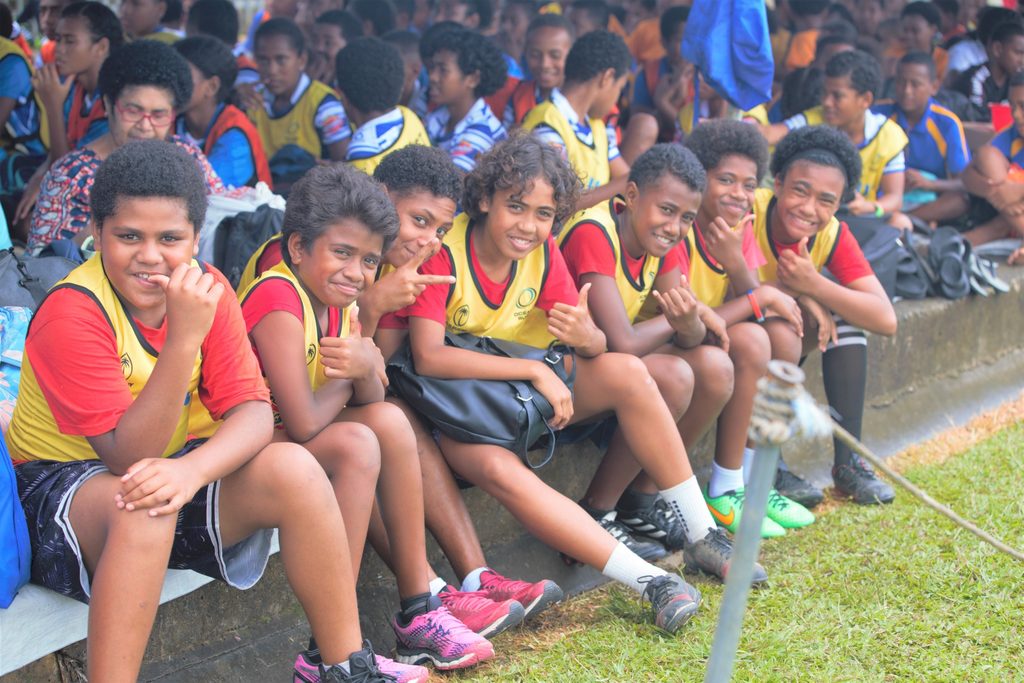
Some of the young participants getting ready for their game. Picture: AUSTRALIAN HIGH COMMISSION
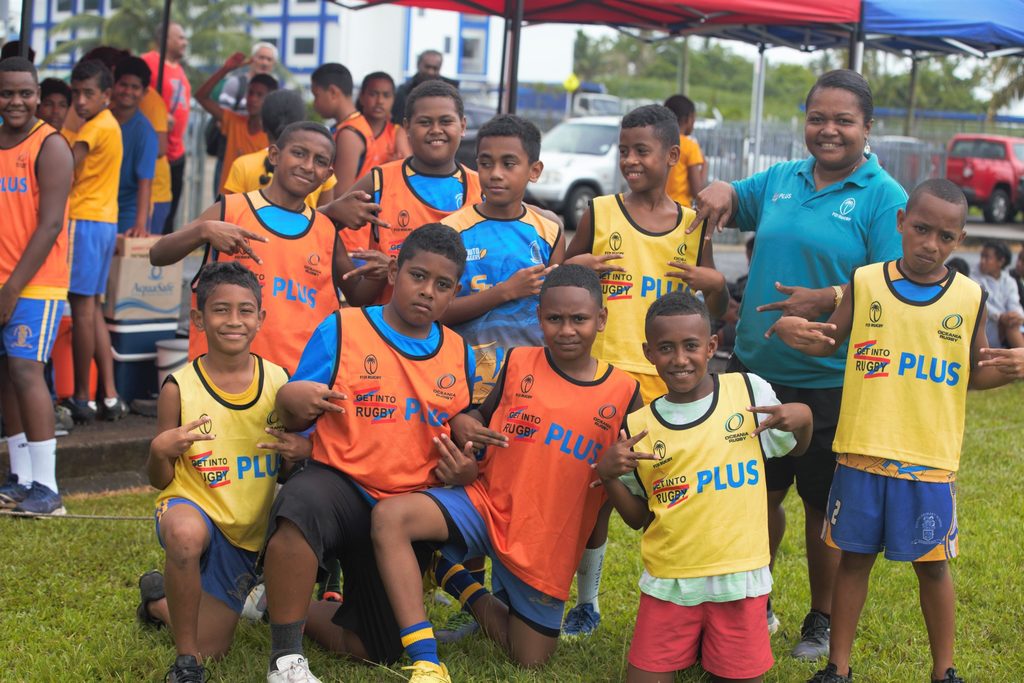
Boys from Veiuto Primary. Picture: AUSTRALIAN HIGH COMMISSION
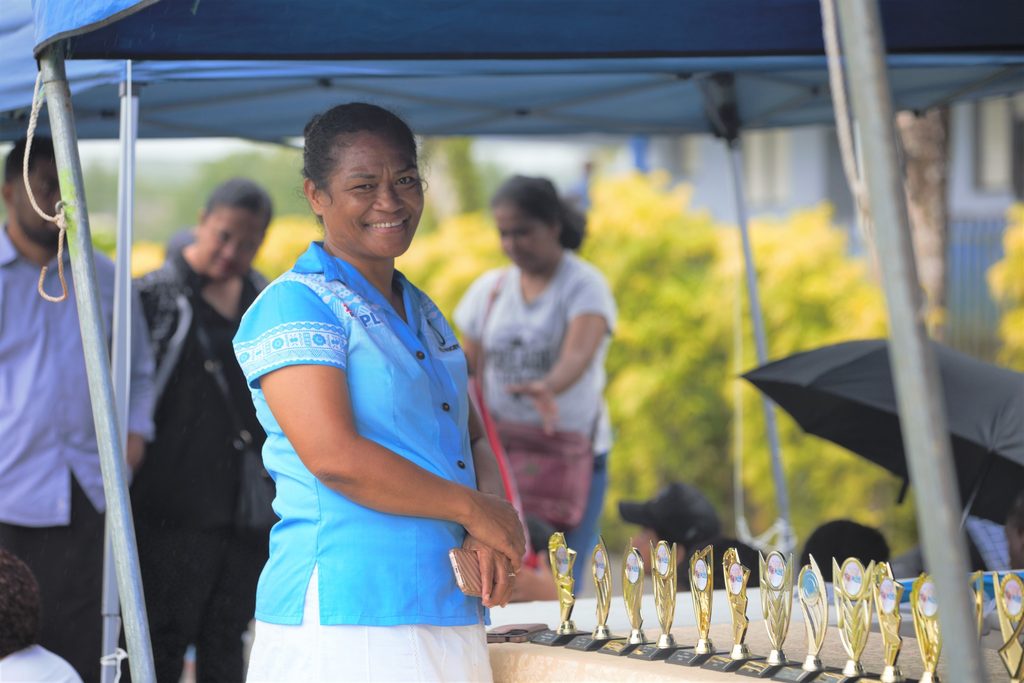
GIR Plus Coordinator Ms Oripa Lee. Picture: AUSTRALIAN HIGH COMMISSION

